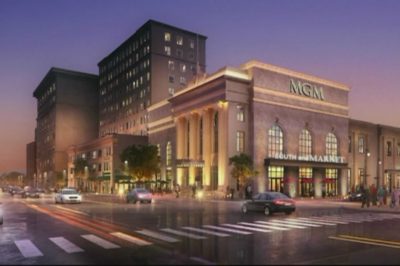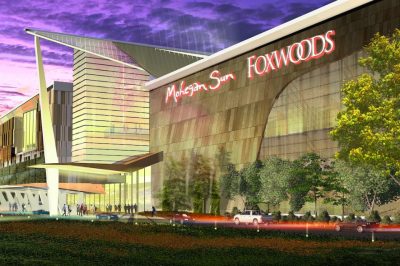 Connecticut has been making the headlines over the last couple of months because of the disagreements related to the construction of the first tribal casino planned on non-tribal land in East Windsor. To pave the way for the construction of a Connecticut casino in East Windsor, Governor Dannel Malloy signed Public Act 17-89, allowing the Mashantucket Pequot and Mohegan tribes to jointly construct a satellite gambling facility.
Connecticut has been making the headlines over the last couple of months because of the disagreements related to the construction of the first tribal casino planned on non-tribal land in East Windsor. To pave the way for the construction of a Connecticut casino in East Windsor, Governor Dannel Malloy signed Public Act 17-89, allowing the Mashantucket Pequot and Mohegan tribes to jointly construct a satellite gambling facility.
Industry experts explained that the two tribal nations struggle to protect state revenue and jobs in the face of the mounting competitive pressure coming from MGM Resorts’ $960 million casino in Springfield, which is currently under construction. This Monday, the gambling world woke up to the news that Connecticut tribes have started clearing the site for the construction of the planned casino, even though the tribal gambling venue is still pending a key approval from the federal government.
It was reported that workers were seen to be knocking down the former Showcase Cinemas to make space for the construction of the entertainment venue that is to spread over 200,000 square feet. The Showcase Cinemas will be demolished within the next six weeks, but the future of the proposal remains blurred.
Bill Calls for Open Casino Bidding Process
 A new bill in Connecticut adds controversy to the construction of East Windsor Casino. The bill seeks to block the state’s plan to allow the two tribal nations to jointly build a casino in East Windsor. Instead of awarding the casino directly to the Mohegan Sun and Mashantucket Pequot tribes, the bill calls for an open bidding process that would include all interested operators. Proponents of the bill explained that the open bidding process is in compliance with the standards of the industry.
A new bill in Connecticut adds controversy to the construction of East Windsor Casino. The bill seeks to block the state’s plan to allow the two tribal nations to jointly build a casino in East Windsor. Instead of awarding the casino directly to the Mohegan Sun and Mashantucket Pequot tribes, the bill calls for an open bidding process that would include all interested operators. Proponents of the bill explained that the open bidding process is in compliance with the standards of the industry.
The Mashantucket Pequot and Mohegan tribes have exclusive rights to operate slot machines in the state. Allowing another operator into the Connecticut market would violate the tribal-state gaming compacts. In addition to that, the East Windsor entertainment and gaming facility would pay a 25% tax on its slot machines and a 25% tax on its table games, in line with Massachusetts tax rates.
Quite unsurprisingly, the proposed bill to revoke the East Windsor license and replace it with an open competition led to a dramatic polarization in opinions. According to the latest news, legislative hearings on gaming bills have been postponed due to the adverse weather conditions. The hearings by the public safety and security committee, originally scheduled to take place last Thursday, are now set to kick off this Tuesday at 10 a.m. in room 2B of the legislative office building in Hartford.
In addition to the gambling expansion, the officials will discuss three bills that involve the Connecticut Lottery Corporation. One bill is to discuss the anonymity of the lottery winners when they claim winnings of $1 million or more. A second bill calls for allowing the lottery to offer certain online games and increasing contributions to problem gamblers treatment programs. Third bill is centered around a study to determine the role of the lottery to the state retirement system.